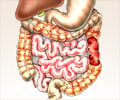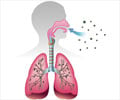Tuberculosis continues to threaten the health of most of Europe and Central Asia; reports say almost 1,000 people still contract it daily.

"Multi-resistance tuberculosis (MDR-TB) is still ravaging the European region, making it the most affected area of the entire world," Zsuzsanna Jakab, WHO regional director for Europe, said in a statement.
She noted that 50 percent of cases are reported and only half of those are successfully cured.
Overall cases of the disease in the vast region -- stretching from Ireland to Russia -- fell by 5.6 percent between 2012 and 2013.
In 2013, there were about 360,000 reported tuberculosis cases with 85 percent occurring in 18 "high priority" countries in Eastern Europe and Central Asia, including Romania, Georgia, Turkey, Uzbekistan, Kazakhstan and Russia.
Most of the 38,000 deaths from the disease were also in Eastern Europe and in former Soviet republics.
"It has been shown that in Europe, TB notifications are higher where national incomes are lower and/or income inequalities are higher."
Tuberculosis is the world’s second most deadly infectious disease after AIDS with 1.5 million deaths recorded in 2013 compared to 1.6 million AIDS-related deaths in 2012.
World TB Day is marked each year on March 24 in an effort to raise awareness of prevention and treatment.
Source-Medindia
 MEDINDIA
MEDINDIA




 Email
Email










